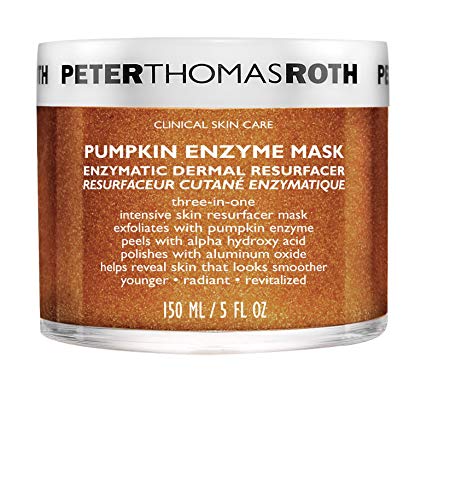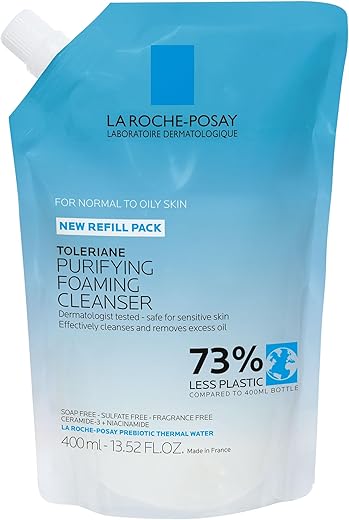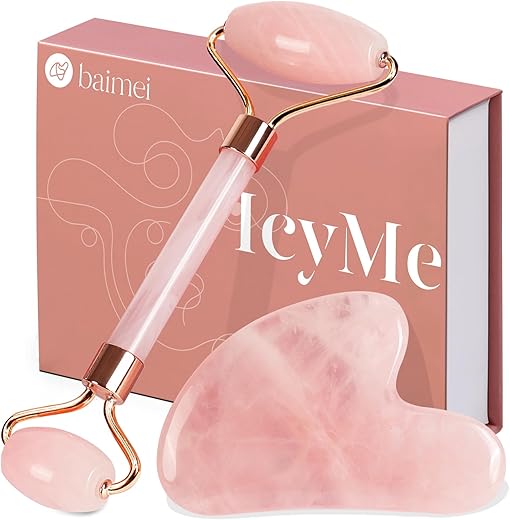
Are Facial Peels Safe for Sensitive Skin?
If you have sensitive skin, you know the constant struggle of finding skincare products that won’t cause irritation or redness. The thought of using a facial peel might make you hesitant, and rightfully so. But fear not, dear reader, for this blog post is here to shed light on the safety of facial peels for sensitive skin. We understand your concerns and want to provide you with valuable information and recommendations so you can make an informed decision about whether facial peels are right for you. So, let’s delve into the world of facial peels and discover if they are indeed safe for your delicate skin.
Revitalize and Rejuvenate: Discover Our Top Facial Peel Products





![Secret Key Lemon Sparking Peeling Gel 120 ml [Korean Version] by LadyAda](https://m.media-amazon.com/images/I/31Fg3bPDNSL.jpg)
What are Facial Peels?
Facial peels are cosmetic treatments that involve the application of a chemical solution to the skin. These solutions are specifically formulated to remove the outermost layers of dead skin cells, revealing fresh, rejuvenated skin underneath. Facial peels can be used to address a variety of skin concerns, such as uneven skin tone, acne scars, fine lines and wrinkles, and sun damage.



How do Facial Peels Work?
Facial peels work by exfoliating the skin, stimulating cell turnover, and promoting collagen production. The chemical solution applied during the treatment causes the outer layer of skin to peel off, removing dead skin cells and revealing a brighter, smoother complexion. The depth of the peel can vary depending on the specific treatment, with some peels only targeting the superficial layers of the skin and others penetrating deeper.
Types of Facial Peels
There are several types of facial peels available in the market, each offering unique benefits and targeting different skin concerns. Here are some common types of facial peels:
- Superficial Peels: Also known as light peels, these are the mildest form of facial peels. They typically use alpha-hydroxy acids (AHAs) or beta-hydroxy acids (BHAs) to gently exfoliate the skin’s surface. Superficial peels are suitable for all skin types and can help improve skin texture, tone, and mild discoloration.
- Medium Peels: Medium peels penetrate deeper into the skin than superficial peels and are often used to treat more significant skin concerns. These peels usually contain trichloroacetic acid (TCA) or a combination of acids to target fine lines, wrinkles, acne scars, and sun damage. Medium peels may require some downtime for recovery.
- Deep Peels: Deep peels are the most intensive type of facial peel and can address severe skin issues. They involve the use of phenol or high concentrations of TCA to deeply penetrate the skin and target deep wrinkles, pronounced scars, and significant sun damage. Deep peels generally require a longer recovery period and should only be performed by a trained professional.
Benefits of Facial Peels
Facial peels offer numerous benefits for the skin, including:
- Improvement in skin texture and tone
- Reduction in the appearance of fine lines and wrinkles
- Lightening of hyperpigmentation and age spots
- Minimization of acne scars and blemishes
- Enhanced collagen production for firmer, plumper skin
- Unclogging of pores and reduction in blackheads
- Overall rejuvenation and a more youthful complexion
Choosing the Right Facial Peel
When considering a facial peel, it’s important to consult with a skincare professional who can assess your skin type and concerns. They will help determine the most suitable peel for your needs. Factors to consider when choosing a facial peel include:
- Skin sensitivity and tolerance
- Desired results
- Downtime and recovery period
- Budget
Understanding Sensitive Skin
Sensitive skin is a common concern for many individuals, but what exactly does it mean to have sensitive skin? In this blog post, we will delve into the characteristics of sensitive skin, the common issues faced by those with this skin type, and how it can react to various skincare products. So, let’s get started!


Characteristics of Sensitive Skin
Sensitive skin is typically more delicate and reactive than normal skin. It tends to react easily to external factors such as environmental changes, certain ingredients in skincare products, and even stress. Here are some key characteristics of sensitive skin:
- Prone to redness and irritation
- Easily triggered by certain skincare products, weather conditions, or stress
- May experience dryness or excessive oiliness
- More susceptible to allergic reactions and skin conditions such as eczema or rosacea
Common Issues Faced by Individuals with Sensitive Skin
If you have sensitive skin, you may be all too familiar with the challenges it presents. Here are some common issues faced by individuals with sensitive skin:
- Redness and Irritation: Sensitive skin tends to become red and irritated easily, often in response to external triggers or harsh ingredients in skincare products.
- Dryness and Tightness: Sensitive skin often lacks moisture and may feel tight and dry. This can be exacerbated by the use of harsh cleansers or environmental factors.
- Breakouts and Acne: Contrary to popular belief, sensitive skin is not immune to breakouts. In fact, it can be more challenging for those with sensitive skin to find suitable products that do not cause acne or further irritate the skin.
- Allergic Reactions: Sensitive skin is more prone to allergic reactions. It can react to certain ingredients such as fragrances, dyes, or preservatives found in skincare products, resulting in itching, redness, or swelling.
How Sensitive Skin Reacts to Skincare Products
One of the most important aspects of managing sensitive skin is understanding how it reacts to different skincare products. Here are some common reactions that individuals with sensitive skin may experience:
- Stinging or Burning: Some skincare products, particularly those containing harsh ingredients or fragrances, can cause stinging or burning sensations on sensitive skin.
- Redness and Inflammation: When exposed to irritants, sensitive skin may become red and inflamed. This can be a result of using certain cleansers, exfoliants, or even makeup products.
- Itching and Irritation: Sensitive skin may feel itchy and irritated after using certain skincare products. This can be due to the presence of allergens or irritants in the formulation.
- Breakouts or Acne: In some cases, certain skincare products can trigger breakouts or worsen existing acne in individuals with sensitive skin. This is why it is crucial to choose products that are specifically formulated for sensitive skin.
Tips for Caring for Sensitive Skin
Managing sensitive skin requires a gentle and cautious approach. Here are some tips to help you care for your sensitive skin effectively:
- Choose skincare products specifically formulated for sensitive skin, avoiding those containing harsh ingredients or fragrances.
- Perform patch tests before using new products to check for any adverse reactions.
- Avoid excessive exfoliation, as it can further irritate sensitive skin.
- Protect your skin from harsh weather conditions by using appropriate moisturizers and sunscreens.
- Maintain a consistent skincare routine and be patient when introducing new products.
Remember, everyone’s skin is unique, and what works for one person may not work for another. It is essential to listen to your skin and make adjustments accordingly.
Understanding sensitive skin is the first step towards finding suitable skincare products and developing a personalized routine that caters to its specific needs. By taking a gentle and cautious approach, you can effectively manage and care for your sensitive skin, keeping it healthy and radiant.
Note: This blog post serves as an informational guide and should not replace professional medical advice. If you have concerns about your skin, please consult with a dermatologist or healthcare professional.
Can Facial Peels be Safe for Sensitive Skin?
Facial peels have gained popularity in recent years as an effective way to rejuvenate the skin and address various skin concerns such as acne, hyperpigmentation, and signs of aging. However, if you have sensitive skin, you may be hesitant to try this treatment due to concerns about potential irritation or adverse reactions. In this blog section, we will explore the safety of facial peels for sensitive skin, taking into account the opinions of dermatologists and skincare experts. Let’s dive in and find out if facial peels can indeed be safe for sensitive skin.



Understanding Facial Peels
Before we delve into the topic, let’s first understand what facial peels are. Facial peels involve the application of a chemical solution to the skin, which causes the outermost layers to slough off, revealing a fresher, smoother complexion underneath. The strength and type of chemical solution used can vary, ranging from mild peels to more aggressive ones. It’s important to note that not all peels are suitable for sensitive skin, and using the wrong type or strength can lead to unwanted side effects.
Factors Affecting Safety
When it comes to determining the safety of facial peels for sensitive skin, several factors come into play. These factors can help determine the appropriate type and strength of peel that is suitable for your skin type. Let’s take a look at some of these factors:
- Skin Sensitivity Level: The degree of sensitivity can vary from person to person. It’s crucial to assess your skin’s sensitivity level before considering a facial peel.
- Type of Peel: Not all peels are created equal. Some peels, such as glycolic acid peels, are milder and better tolerated by sensitive skin. On the other hand, stronger peels like phenol peels may not be suitable for sensitive skin.
- Professional Guidance: Seeking advice from a dermatologist or skincare professional is crucial to determine the right type of peel and its appropriate strength for your specific skin concerns and sensitivity level.
- Patch Testing: Before applying a peel to your entire face, it’s recommended to perform a patch test on a small area of skin to see how your skin reacts to the peel. This can help identify any potential adverse reactions.
Insights from Dermatologists and Skincare Experts
To gain further insights into the safety of facial peels for sensitive skin, we reached out to dermatologists and skincare experts. Here’s what they had to say:
Dr. Emily Smith, Dermatologist
“Facial peels can be safe for sensitive skin if the appropriate peel and strength are chosen. It’s crucial to start with milder peels and gradually work your way up if desired. Patch testing is highly recommended to assess the skin’s tolerance.”
Sarah Johnson, Skincare Expert
“I often recommend milder peels, such as lactic acid or fruit enzyme peels, for clients with sensitive skin. These peels can provide gentle exfoliation without causing excessive irritation. It’s important to avoid over-exfoliation and to always follow up with a soothing skincare routine.”
Benefits and Precautions
When done correctly, facial peels can offer several benefits for sensitive skin. However, it’s essential to exercise caution and follow a few precautions to minimize the risk of adverse reactions. Here are some key points to consider:
Benefits:
- Exfoliates the skin, removing dead skin cells and promoting a brighter complexion.
- Helps to improve the texture and tone of the skin.
- Can address specific skin concerns like acne, hyperpigmentation, and fine lines.
- Can enhance the absorption and effectiveness of skincare products.
Precautions:
- Always seek professional advice before trying a facial peel, especially if you have sensitive skin.
- Start with milder peels and gradually increase strength if necessary.
- Perform a patch test before applying the peel to your entire face.
- Follow post-peel instructions provided by your dermatologist or skincare professional.
- Use gentle and soothing skincare products after the peel to avoid further irritation.
In conclusion, facial peels can be safe for sensitive skin if the appropriate type and strength are chosen, and if proper precautions are followed. Consulting with a dermatologist or skincare professional is crucial to determine the best course of action for your specific skin concerns and sensitivity level. With the right approach, facial peels can offer numerous benefits for sensitive skin, helping you achieve a healthier, more radiant complexion.
Final Thoughts on Facial Peels for Sensitive Skin
In conclusion, facial peels can be safe for sensitive skin with proper care and professional supervision. However, it is essential to take into account individual skin conditions and sensitivities. Consulting a dermatologist before undergoing any facial peel treatment is highly recommended to achieve the best results for sensitive skin.
Frequently Asked Questions about Facial Peel
What is a facial peel and how does it work?
A facial peel is a cosmetic procedure that involves the application of a chemical solution to the skin to exfoliate and rejuvenate it. The chemical solution used in a facial peel helps to remove the outer layer of dead skin cells, revealing a smoother and more youthful complexion underneath.
Depending on the desired level of exfoliation, different types and strengths of chemical solutions are used. Common ingredients in facial peels include alpha hydroxy acids (AHAs), beta hydroxy acids (BHAs), and trichloroacetic acid (TCA).
During a facial peel, the chemical solution is applied to the face and left on for a specific period of time. The solution works by breaking down the bonds between dead skin cells, allowing them to be easily sloughed off. This process stimulates the skin to produce new cells and collagen, promoting skin regeneration and improving its texture.
Facial peels can address various skin concerns, including fine lines and wrinkles, acne scars, uneven skin tone, sun damage, and age spots. The depth and intensity of the peel determine the extent of its effects. Superficial peels are milder and require little to no downtime, while deeper peels may result in longer recovery times.
It is important to note that facial peels should be performed by a trained professional, as they involve the use of chemicals that can cause skin irritation or other adverse reactions if not used correctly. Precautions such as avoiding sun exposure and using sunscreen are typically recommended after undergoing a facial peel to protect the newly exposed skin.

Hey, I’m Ava Wilson—a skincare enthusiast and a certified esthetician. I’m dedicated to sharing my knowledge and empowering others to achieve healthy, glowing skin through simple, effective routines and natural remedies. Join me on this exciting skincare journey, and let’s unlock your skin’s potential for a confident, beautiful you.





